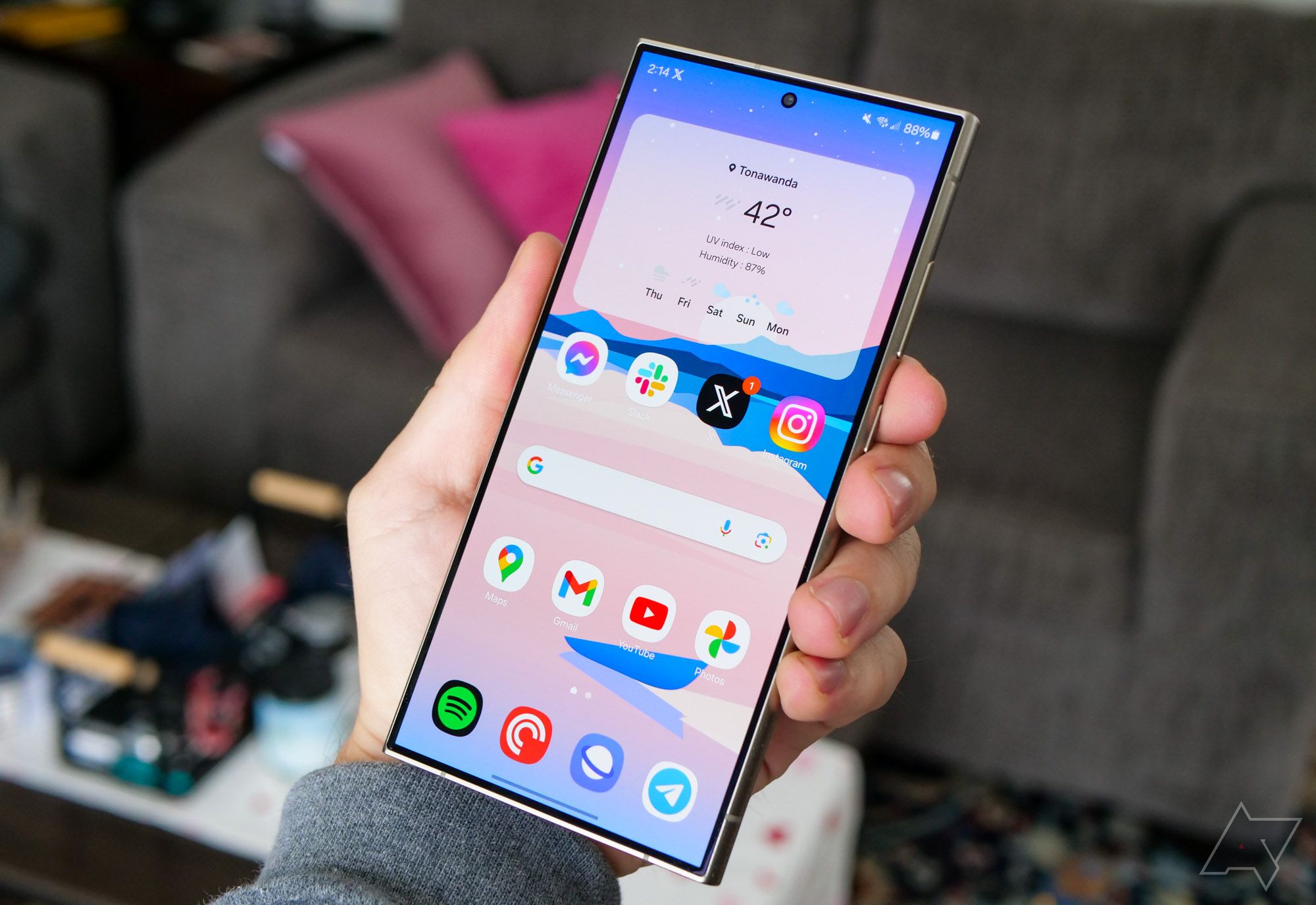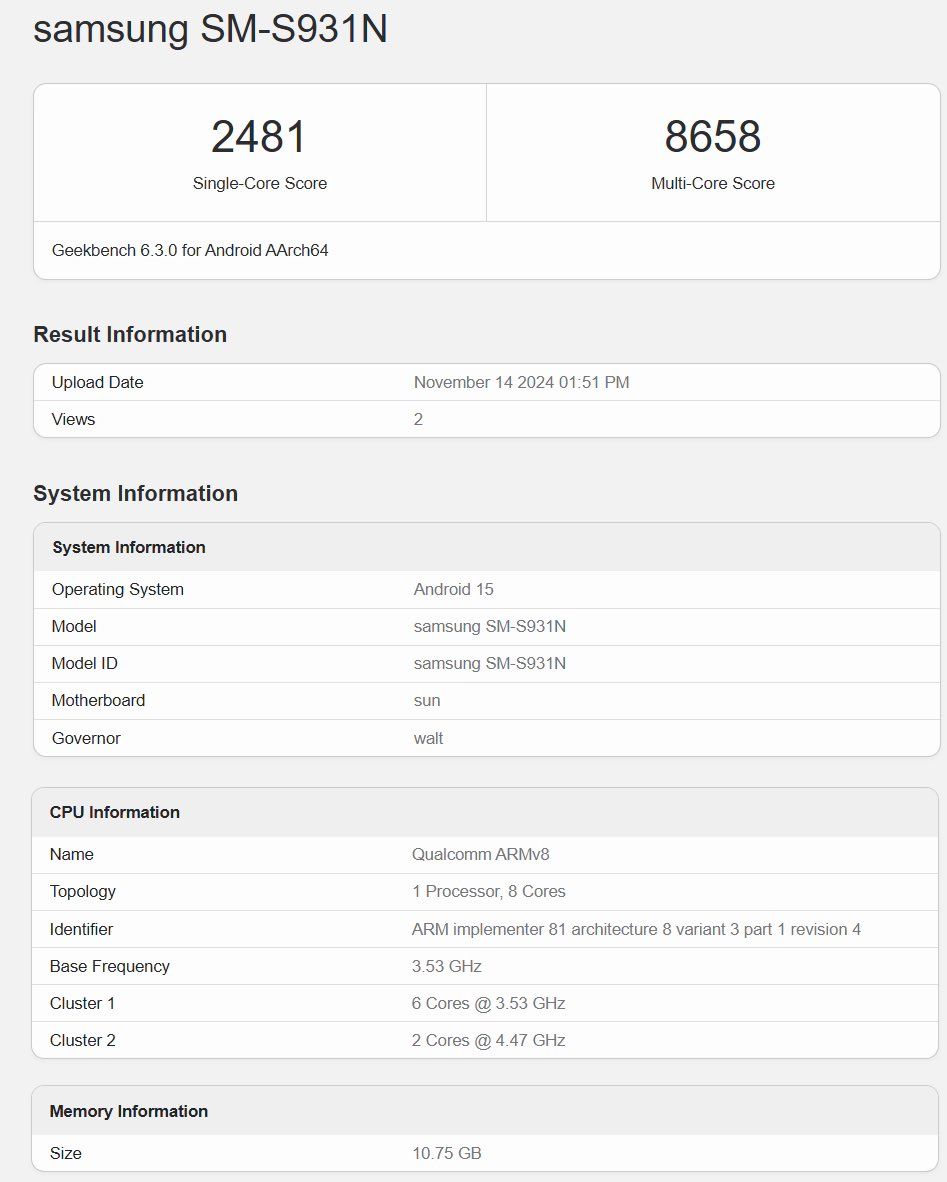Key Takeaways
- The base model Galaxy S25 will ship with 12GB of RAM in addition to the Snapdragon 8 Elite chip.
- Benchmarks indicating lower performance than expected from the SoC spark doubts.
- Early (and sometimes all) benchmarks aren’t always reliable, can be manipulated, and might simply not matter.
As January inches ever closer, so do leaks about the upcoming Samsung Galaxy smartphones, now strongly indicated to launch on January 23. After various morsels dropped, including rumors of standard colors and exclusive colorways, one chip to rule them all, and a leaner top-shelf flagship, the latest tidbit stands out for how significantly it could affect all buyers.
The base model Galaxy S25 will ship with 12GB of RAM, according to a listing found on Geekbench (via @Jukanlosreve on X). And look twice at that listing, as it’s raised more than a few eyebrows with what some are calling “concerningly” low performance numbers.

Related
7 crucial ways Samsung should improve the upcoming Galaxy S25 series
My Galaxy S25 wish list (beyond the obvious)
The good, the bad, and the ugly
Great news for most users, with one question
The info page in question.
The listing in question mostly outlines the device itself, without, of course, using any common branding. The leaked device’s SM-S931N code falls right in line with what could come after the Galaxy S24’s SM-S921 designation. The pair of 4.47GHz CPU cores and sextet of 3.53GHz CPU cores, along with a late-gen ARM ISA mention, perfectly match the Snapdragon 8 Elite that we’re certain will power the S25. It runs Android 15, and it came from one of the most reputable Samsung leakers out there.
The last line displayed in the Geekbench screenshot specifies 10.75GB of RAM, which almost certainly refers to 12GB, but differs due to idiosyncrasies mostly in measurement units and rounding. The listing appears, by all means, to be about the Korean Galaxy S25, and 12GB of RAM is a welcome change. Not only are apps increasingly resource-intensive, but on-device AI processing drastically increases the need for high-speed system memory.
What people are worrying about now
Source: @UniverseIce on Twitter
A claimed real-world shot of the upcoming trio.
Shortly after the leak dropped, social media users and tech reporters alike began questioning the numbers at the top of the page. The Galaxy S25’s apparent benchmarks came back somewhere around 10-20% less than the Snapdragon 8 Elite’s supposed peak numbers based on Qualcomm reference testbeds and the 8 Elite phones available to outlets right now.

Related
Leveraging Snapdragon: Gamesir’s curious head start on AAA emulation on Android
Something feels slightly off
Were the Galaxy S25 to ship with 20% lower performance than what its famously advanced SoC could really achieve, it’s safe to say everyone would be disappointed. So would we. But there’s a reason we don’t prescribe much weight to benchmarks.
The benchmark probably doesn’t matter
There are multiple reasons why these results, and similar early leaks of other benchmarks, aren’t usually worrisome.
- They’re not necessarily from a release-ready device with fully optimized software.
- Manufacturer reference testbeds are engineered to maximize the chip’s performance. That’s their entire purpose. Phones can’t — and shouldn’t — always do that.
- Real-world benchmarks of identically and similarly equipped devices aren’t necessarily perfect, either. A manufacturer could employ tricks to game or inhibit benchmarking software, for various reasons throughout the development and marketing process.
While we understand the concern, there’s no solid reason to believe a Geekbench listing that seemingly claims the unreleased Galaxy S25 is a slouch. We already know the benchmark software reports lower-than-nominal RAM on almost all devices, and delivers inconsistent test results based on device characteristics.
But it’s still an interesting tidbit.








GIPHY App Key not set. Please check settings